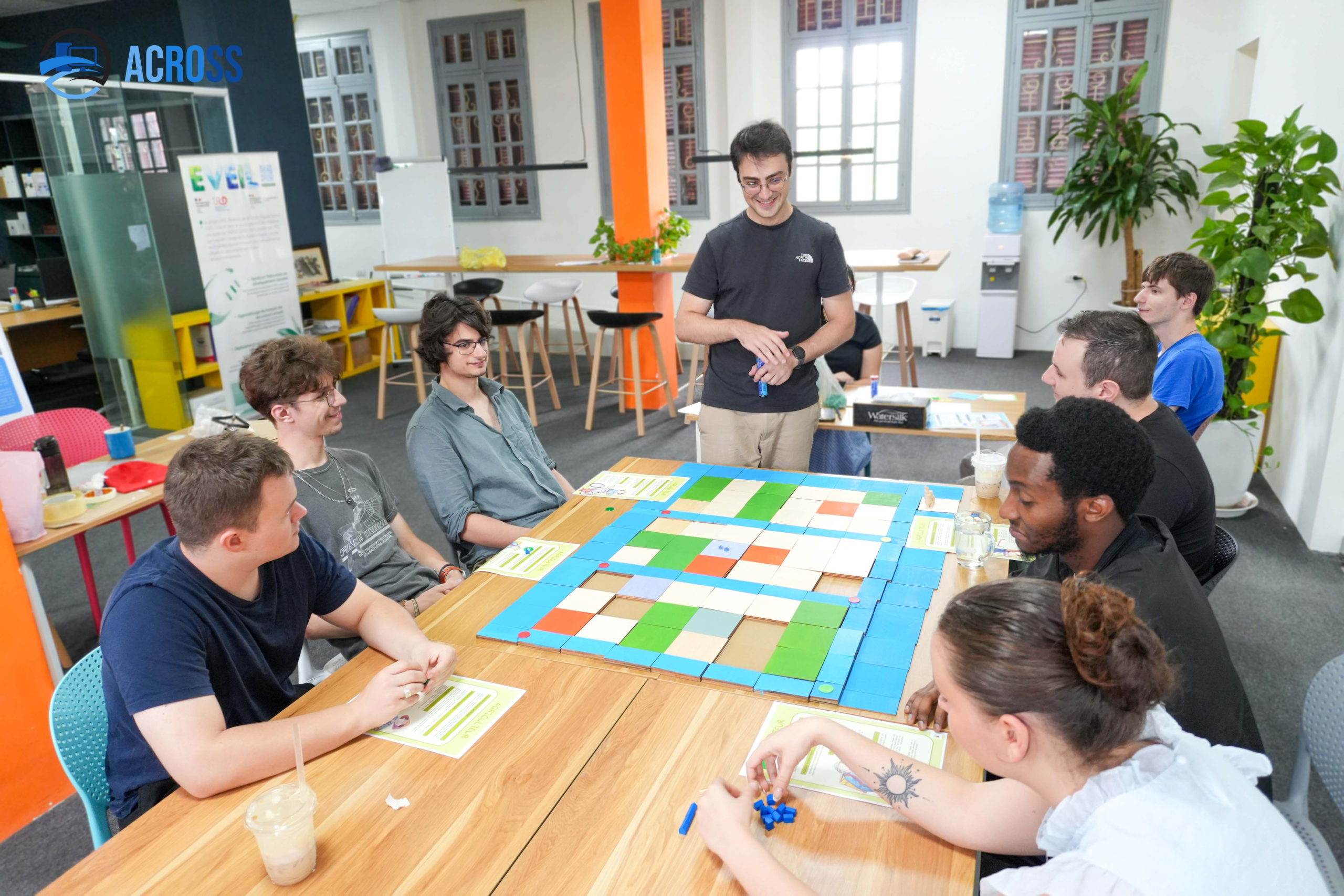
Léo Biré, a PhD student at the ACROSS Laboratory, has developed a board game called ALaN (Ai Lấy Nước), which illustrates the practices of real-life participants in Vietnam’s irrigation systems. The aim is to facilitate the expression of practices that have become so internalized as to be almost unspeakable, as well as to capture unconscious reflexes and actions that interviews alone could never reveal.
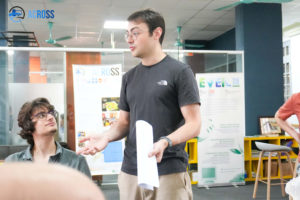
Léo Biré, a PhD student at the ACROSS Laboratory
In his PhD thesis, Léo Biré adopts a hybrid method that combines a serious game with an interactive multi-agent simulation. This approach aims to better understand the complexity of water management in the Bắc Hưng Hải irrigation system by focusing on the village scale. With the serious game ALaN, the aim is to create an experimental space where actors can concretely show their practices and collectively reflect on them, while also contributing to the transmission of local knowledge on water management.
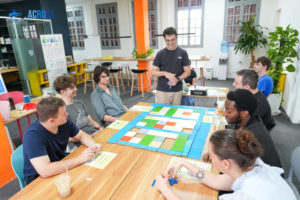
ALaN has undergone numerous trials with different groups of players
ALaN brings together seven players (five farmers with different profiles, one water guide, and one pumping station worker), who “replay” their roles across two agricultural seasons during which water is distributed on a game board representing an irrigated system. The roles were designed to closely mirror real-world logics, and a set of basic rules was established to structure water circulation. However, the game retains a high degree of flexibility so that practices not observed in the field may still emerge during play. Finally, ALaN integrates multiple dialogue spaces to ensure that participants have ample opportunity to express their views on current water governance.
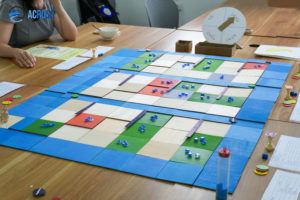
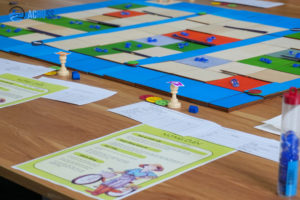
The GAMA modeling platform is used to automate several components of the game: recording the status of each plot and the water distribution in the system across seasons, calculating and displaying output indicators such as water distribution efficiency, and generating a scoreboard to give players an idea of how well they achieved their objectives in the game. Six test sessions were conducted with a primarily academic audience (students and professors). Then, one week of fieldwork using ALaN with directly involved stakeholders took place from October 13th to 18th, with a total of five workshops across two villages. During the workshops, all players engaged with the game and actually pointed out both its functional flaws, but also participated in adding water distribution practices absent from the game. ALaN proved to be an experimental platform where knowledge on water distribution is discussed and internalized knowledge comes to light.
This way, the two-stage participatory approach seeks to unveil two otherwise inexpressible layers of water governance: the everyday practices of water management, and the possible futures of that management.
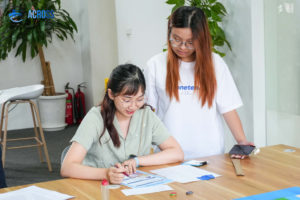
About Léo Biré’s PhD thesis: “In the machine’s bowel. talking, playing, and simulating irrigation management in the Bắc Hưng Hải system (Vietnam) ”
This dissertation seeks to understand the governance mechanisms of the largest polder in the Red River Delta, Bắc Hưng Hải, within a context of rapid transformation. Beyond the striking sight of infrastructures crisscrossing the territory, it sheds light on the colossal irrigation machinery of Bắc Hưng Hải through the lens of the everyday practices of the thousands of irrigation workers—men and women—who plan, pump, and guide water from the rivers to the fields, through canals of all sizes. The dissertation reveals the crucial role of these actors, who are nearly invisible in the scientific literature on the Red River Delta, which tends to focus predominantly on the technical, and at times economic, aspects of irrigation. It proposes to delve into the machinery of Bắc Hưng Hải, not only to understand its major mechanisms but also to expose its small yet essential cogs. It demonstrates that the survival of irrigation systems largely plays out at the communal and village scale. From pumping stations to canals, under scorching sun or in the cold of night, station operators, water guides, and farmers coordinate to deliver water at the right time for rice to grow-patching leaks in canals and pumps to compensate for steadily shrinking maintenance budgets, all while wondering when, if ever, these infrastructures will be properly repaired.

Local farmers played ALaN
These actors and practices are not invisible by accident. The dissertation illustrates both how and why they are difficult to observe—due, on one hand, to their very nature: these are mundane, everyday practices of management to which no one pays attention anymore, so deeply have they been internalized and taken for granted; and, on the other hand, due to the specific challenges of conducting research in Vietnam. After several rounds of interviews and participant observation in the provinces of Hưng Yên and Hải Dương, the dissertation invited participants to “show” their practices through a board game inspired by the findings of the fieldwork.
The majority of the empirical findings from the fieldwork were then used to develop an agent-based model exploring how irrigation management might evolve in the decades to come, as well as how the role of the many workers who have dedicated their entire lives to maintaining the system may change.





